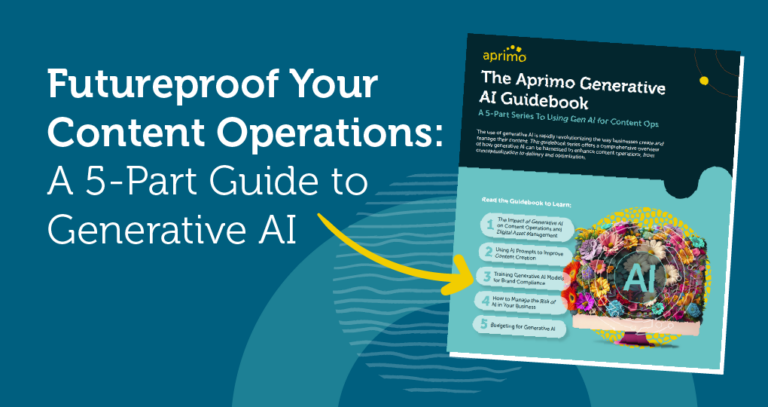Mastering Multi-Channel Content Distribution With DAM


Understanding Multi-Channel Content Distribution
Mastering multi-channel content distribution should be a goal for marketing teams at enterprises striving to easily connect with diverse audiences. You need to be wherever your desired customers spend time. However, the complexity of managing multi-channel distribution poses challenges, from maintaining consistency in messaging to achieving optimal performance across platforms. Some of these challenges include:
As the demand for content continues to surge, marketers grapple with the need for a unified solution that streamlines content planning, creation, and distribution processes. That’s where digital asset management (DAM) comes in.
Introduction to Digital Asset Management (DAM)
On a basic level, digital asset management software serves as a centralized hub for storing, organizing, and retrieving digital assets that range from images and videos to documents and creative files. This systematic approach enhances efficiency by providing a structured environment that simplifies content management processes. Adopting DAM results in more than just improved efficiency. It revolutionizes the way organizations master multi-channel content distribution. By providing a unified repository, DAM guarantees consistency in brand messaging across diverse channels.


Leveraging DAM for Multi-Channel Content Distribution
Integrating DAM with various content distribution channels modernizes the way organizations manage and disseminate their digital assets. This strategic synergy allows for a harmonious collaboration between DAM and channels such as social media, websites, email, and more. Through streamlined workflows and interconnected processes, content will flow from creation to distribution, hurdling over bottlenecks that otherwise require extensive time and resources.
DAM makes the optimization of assets for different channels a dynamic and intuitive process. For instance, if a nationwide organization is preparing to launch a product simultaneously across diverse platforms, marketers can tailor images and videos to meet the specific requirements of each channel. This might include resizing images for social media, optimizing videos for website responsiveness, and ensuring email-friendly formats, and it all happens within the centralized DAM platform.
DAM also acts as the guardian of brand consistency and integrity by making sure that every piece of content adheres to established brand guidelines. This governance reduces the risk of fragmented messaging and reinforces a unified brand identity across diverse channels.
Best Practices for Mastering Multi-Channel Content Distribution With DAM
Consider these best practices that optimize workflows and elevate content impact. At the forefront of this strategic approach is the development of a content strategy that will serve as the compass for effective distribution. This includes:
-
Audience segmentation: Tailoring content based on audience segments helps teams take a personalized and resonant approach across channels.
-
Content calendar: A well-structured content calendar facilitates organized planning and timely deployment.
-
Channel prioritization: Understanding the unique characteristics of each channel and prioritizing them based on audience engagement and relevance maximizes impact.
Metadata and tagging are invaluable tools for efficient asset organization. By annotating assets with descriptive metadata, marketers can swiftly search, filter, and retrieve content. DAM facilitates seamless collaboration across teams by providing a centralized platform to access, modify, and approve assets in real time. This expedites content creation processes and offers consistency and alignment with brand guidelines.


Overcoming Challenges in Multi-Channel Content Distribution With DAM
Discover common challenges and how to overcome them below.
Version Control and Asset Redundancy
DAM helps teams work cohesively on the most up-to-date assets. For instance, a consumer goods marketing team collaborating on a product launch can leverage DAM as a centralized repository. This prevents versioning conflicts, ensuring that everyone aligns seamlessly.
Managing Rights and Permission
Managing rights and permissions is another critical facet where DAM excels. Through meticulous control, organizations can define access levels and usage rights. A practical example involves a company’s media assets. DAM allows authorized users to fine-tune access to make sure sensitive content is restricted to authorized personnel.
Handling Diverse File Formats and Sizes
Handling diverse file formats and sizes is effortless within DAM. If a brand needs to distribute visuals across many platforms with a wide variety of requirements, DAM automates the adaptation process and generates optimized versions for each channel, from social media to email.
Measuring Success and ROI With DAM in Multi-Channel Content Distribution
Effectively gauging the impact of DAM software in multi-channel content distribution requires a strategic focus on key performance indicators (KPIs) that align with overarching business goals. Some crucial KPIs include:
-
Tracking how frequently assets are used to provide insights into their relevance and impact across channels
-
Assessing the speed at which content is created and distributed through DAM to learn about operational efficiency gains
-
Monitoring brand consistency indicators, such as adherence to brand guidelines, to unify messaging
Analyzing these metrics allows organizations to further optimize content distribution strategies. By delving into performance data, they can refine their approaches, identify successful channels, and adapt content for greater impact.
Demonstrating tangible ROI to stakeholders solidifies the value proposition of DAM. If a company implements DAM to streamline content creation and distribution, they’ll likely reduce the time spent on manual processes. A significant increase in overall content output, for example, translates to cost savings and positions DAM as a strategic investment that enhances content creation capabilities.

Frequently Asked Questions
How does DAM help in managing content across multiple channels?
DAM provides a centralized repository for storing, organizing, and distributing digital assets, enabling efficient management and distribution across various channels.
What role does metadata play in DAM for multi-channel content distribution?
Metadata enhances asset discoverability and aids in categorizing and organizing content, facilitating effective search and retrieval across channels within the digital asset management system.
How can DAM ensure brand consistency across different channels?
DAM helps maintain brand consistency by storing approved assets, style guides, and brand assets centrally, ensuring that only authorized and up-to-date content is distributed across channels.
What are some common challenges organizations face when implementing DAM for multi-channel content distribution?
Challenges include encouraging user adoption, integrating DAM systems with existing workflows and systems, managing metadata consistency, and addressing scalability concerns.




